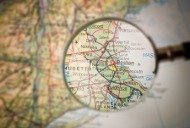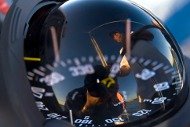Infotext
This map layer shows in five categories the total of all critical nuclear tests between 1945 and 2018 that a country performed above ground, below ground, in the atmosphere or under water.
Example of how to read the map:
Pakistan carried out two nuclear tests in total.
The following graph shows the number of tests carried out in one decade.
Sources:
-
CTBTO - Comprehensive Nuclear-Test-Ban Treaty Organization
Founded in 1996 and located in Vienna, CTBTO has made it its mission to hamper first development or any further development of nuclear weapons. A global net of sensors serves as surveillance mechanism; furthermore, it intends to carry out on-site inspections after its ratification. The organization can only fulfil its mission completely when the 44 states have ratified Annex 2 of the Treaty; so far, only 41 states have signed, and 36 have ratified the Treaty.
-
U.S. Department of Energy - Nevada Operations Office
The Atomic Energy Commission that was established in 1947 set up the Nevada Operations Office in 1962 that, after several restructuring efforts, is under the leadership of the National Nuclear Security Administration (NNSA). NNSA maintains and enhances the safety, security, and effectiveness of the US nuclear weapons stockpile without nuclear testing. At the same time, it provides the US Navy with safe and effective nuclear propulsion and responds to nuclear and radiological emergencies in the US and abroad.





